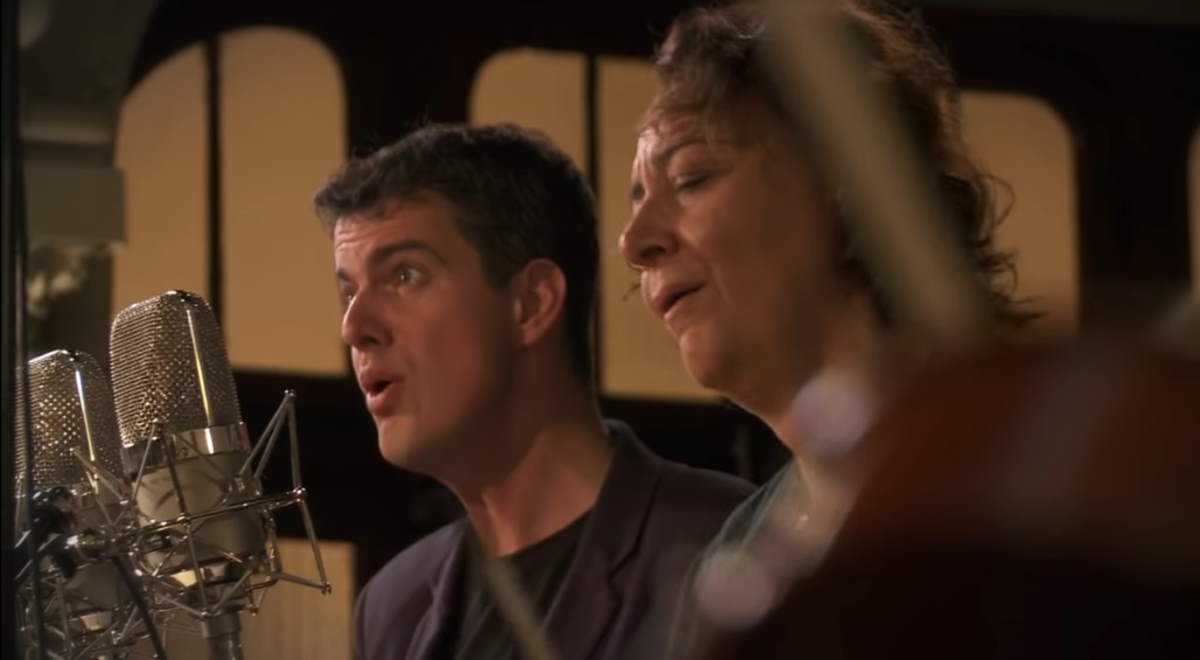Accompanied by her own early music ensemble Orfeo 55, the French contralto Nathalie Stutzmann sings Georg Friedrich Händel’s “Ah, mio cor, schernito sei,” an aria from the 1735 opera Alcina. This performance is recorded for Stutzmann and Orfeo 55’s 2017 album Quella fiamma – Arie Antiche, a selection of pieces from Arie antiche, a 19th Century collection of songs edited by the Italian composer and music editor Alessandro Parisotti (24 July 1853 – 4 April 1913) to be a vocal primer.
Händel’s Ah, mio cor, schernito sei
“Ah, mio cor, schernito sei” is a renowned aria from George Frideric Händel’s opera “Alcina”, HWV 34, composed in 1735. The opera, set on the magical island of the enchantress Alcina, features a story rich in themes of love, deception, and transformation. This particular aria is sung by the character Alcina, an enchantress who falls deeply in love with the knight Ruggiero.
The aria occurs in the second act, at a moment of profound emotional turmoil for Alcina. She has discovered that Ruggiero, whom she loves passionately, has been deceiving her and plans to escape. The title translates to “Ah, my heart, mocked and betrayed,” and it captures the intense anguish and vulnerability of a woman scorned. Handel’s music poignantly conveys Alcina’s despair, with a sorrowful, flowing melody that allows the singer to express a wide range of emotions.
The orchestration complements the mood, using strings to create a backdrop of sorrow and tension. The aria is notable for its demanding vocal requirements, showcasing the singer’s ability to convey deep emotion through both technical precision and expressive delivery. The pathos in Alcina’s music reflects her transformation from a powerful sorceress to a heartbroken woman, revealing the human vulnerability beneath her magical exterior.
“Ah, mio cor, schernito sei” remains a favorite among mezzo-sopranos and sopranos, admired for its emotional depth and the opportunity it provides to display both vocal prowess and dramatic intensity. Its enduring popularity in concert performances and recordings testifies to its power to move audiences, making it a standout piece in Handel’s extensive operatic repertoire.
Ah, mio cor, schernito sei lyrics (text)
Italian
Ora intendo perché l’arme vestì;
crudei, spergiuro!
di lui, di or farne vendetta io giuro.
Ah! mio cor! schernito sei!
Stelle! Dei!
Nume d’amore!
Traditore!
T’amo tanto;
puoi lasciarmi sola in pianto,
oh dei! perché?
Ma, che fa gemendo Alcina?
Son reina, è tempo ancora:
resti o mora,
peni sempre, o torni a me.
English translation
Now I mean why the arms were clothed;
Cruel, perjury!
Of him I swear, and now I swear vengeance on him.
Ah! My heart! Mocked and betrayed!
Stars! Of!
God of love!
Traitor!
I love you so much;
You can leave me alone crying,
Oh gods! because?
But, what is Alcina doing moaning?
I’m a little girl, it’s still time:
remains, O blackberry,
You always think, or you come back to me.
Sources
- “Quella Fiamma – Arie Antiche” on the Warner Classics website
- Alcina on Wikipedia
- Ah! mio cor schernito sei! lyrics (text) on the Operas Arias website
